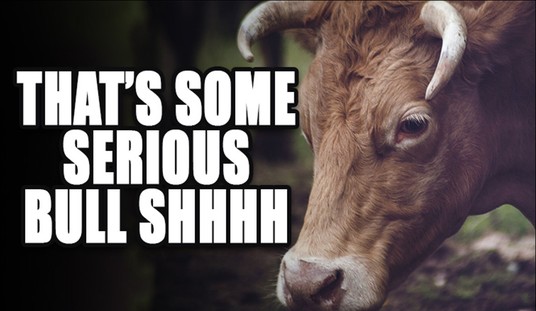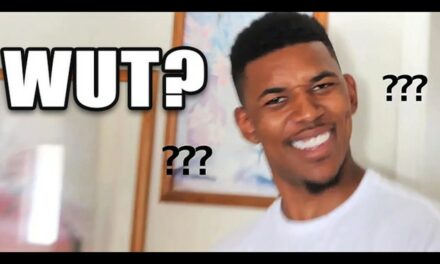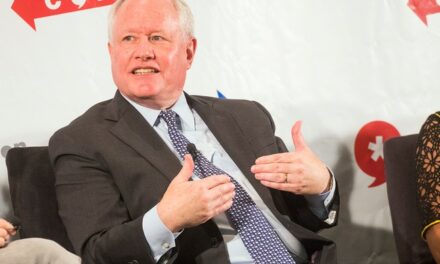We support our Publishers and Content Creators. You can view this story on their website by CLICKING HERE.
We are going to have to be careful with this story, because we have not yet been able to verify a central premise of the story.
Let’s start at the beginning. Yesterday, Tim Pool posted the following on Twitter/X:
Advertisement
CNN is now threatening any social channels that provide commentary on the debate stating they will not allow the use outside of CNN
Commentary on a presidential debate is the epitome of fair use and we fully intend to provide insight and real time fact checking Thursday LIVE
— Tim Pool (@Timcast) June 24, 2024
Mr. Pool went on to ask the big man, Elon Musk, what Twitter/X might do if there is a copyright strike:
Question for @elonmusk
Will live commentary and fact checking shows for the CNN Debate be taken down if CNN files a DMCA or will X default to fair use and have the matter handled externally?
We plan to simulcast https://t.co/z7IiKGLRpa
— Tim Pool (@Timcast) June 24, 2024
And that led to this reaction:
The public has a right to see Presidential debates however they would like. DMCA does not apply.
— Elon Musk (@elonmusk) June 25, 2024
But let’s back up a minute, here. Pool claims that ‘CNN is now threatening any social channels that provide commentary on the debate stating they will not allow the use outside of CNN’ but we have not been able to verify this ourselves. Maybe he is getting the story right, maybe he isn’t, we don’t know. And judging by his second post, it might be that CNN is not saying is that they will go after ‘mere’ commentary but instead will go after people who basically rebroadcast the entire thing or huge chunks of it, even if they are also putting their commentary/reactions/fact checks into it.
But whether Pool is right or not, Musk has written his reaction and that is potentially extremely newsworthy. And if you are not aware, DMCA refers to the Digital Millennium Copyright Act, a law that is in all frankness, an absolute travesty for freedom of expression. Basically, it deals with a situation where the user of an Internet service is allegedly breaking someone’s copyright.
We’ll start with a relatively positive example. Imagine if someone posted the entire original Star Wars on Twitter/X. Then Disney would send a takedown notice, and if Twitter/X didn’t take it down immediately, then Twitter/X would be legally responsible for this, as well as the person who violated their copyright.
Here’s how a pro-DMCA website …
The DMCA notice process https://t.co/sPcFf1qtzw
— DoodleBob.eth (@MrJamesonNeat) November 19, 2021
… explains it:
The process entails the copyright owner (or the owner’s agent) sending a DMCA takedown notice to a service provider requesting the provider to remove material that is infringing their copyright(s). A service provider can be an internet service provider (e.g., Comcast), website operator (e.g, eBay), search engine (e.g., Google), a web host (e.g., GoDaddy) or other type of online site-operator.
There are several elements that should be included in a takedown notice that are specified by the copyright law. If most of these elements are not included, the service provider may refuse to take down the material. Even if a takedown notice meets all the legal requirements, the service provider still may refuse to takedown the material. However, if they fail to do so, then they open themselves up for potential secondary liability for assisting with copyright infringement. (see Safe Harbors for more)
The DMCA takedown process can be used regardless of whether the copyright owner has registered their work with the U.S. Copyright Office. It should not be used for anything other than copyright infringement claims. Many service providers offer easy-to-use online tools to submit claims directly to the provider through an online DMCA takedown form.
After a takedown notice is sent to a service provider, the provider usually notifies the user, subscriber or other person who is responsible for engaging in the infringing activity. If that person – the alleged infringer – in good faith does not think the activity is infringing, he or she can send a counter notice to the service provider explaining why they disagree with the copyright owner. After receiving a counter notice, the service provider is obligated to forward that counter notice to the person who sent the original takedown notice. Once the service provider has received a valid DMCA counter notice they must wait 10-14 days. If the copyright owner sues the alleged infringer in that time frame the material will remain down, but if no suit is filed then the service provider must re-activate or allow access to the alleged infringing activity.
Advertisement
Now, we just outlined the good side of it. Now, let’s talk about the bad side.
Imagine if you are a person who is the subject of a negative news story. For instance, the other day we told you about how the head of LBGTQ+ of Maryland, Michael Knaapen, was allegedly busted texting with what he thought was a fourteen year old. That story involved video, here:
We just busted the head of the LGBTQ Dems of Maryland going after a 14-year-old. 😳
Groomers are about to be mad.
Full video dropping early for subscribers on X. Help support our mission and go to my page and click subscribe in the top right corner. pic.twitter.com/rlvJO2QmmO
— Alex Rosen (@iFightForKids) June 22, 2024
Now, this part is entirely hypothetical, but imagine you are Mr. Knaapen, and you wanted to suppress this story? Well, then all you have to do is send a notice to Twitter/X that you own the copyright to that video and BAM, Twitter/X has to take the video down or risk liability. Since most providers are not interesting in risking liability for such a claim, they will almost always take down such a video immediately, however facially bogus the claim is, and then Mr. Knaapen gets to suppress the story for up to two weeks! Indeed, if Mr. Knaapen actually filed a lawsuit—however bogus—then the story will be suppressed indefinitely.
Sure, sooner or later, this abuse will fall apart, but it can buy time. If the bogus copyright owner is running for political office, for instance, it might be used to suppress a story in October long enough to get through the election in November. You can imagine other scenarios where suppressing the story for a short time might be advantageous—even if it does risk a Streisand Effect.
Now, just to be clear, the scenario painted in the last two paragraphs is only a hypothetical using a real-world event to illustrate how the DMCA can be abused. Those paragraphs are fictional. As far as we know, Mr. Knaapen hasn’t abused the DMCA this way. But now you see how easily the DMCA can be abused. It’s a bad law that tries to do an end run around the rule against prior restraints on freedom of expression, and it needs to be struck down by the courts as such. We should never prioritize silencing people over copyright protection.
Advertisement
But the upshot of all of this is that if Pool is correct and CNN is threatening to go after people for either effectively rebroadcasting the debate or going after mere commentary, and if Twitter/X does exactly what Musk said it would … then Twitter/X is risking a massive amount of liability to CNN, a company that is deeply hostile to Musk’s decision to make Twitter/X more friendly to freedom of expression.
Of course, the other problem is whether or not it is valid to copyright such huge, newsworthy events, but we’ll be honest: This author is not sufficiently versed in copyright law to know whether or not CNN can effectively enforce a copyright over such a newsworthy event. No lawyer knows everything and this is one of our blind spots.
And finally, we will remind you of something we usually point out just because it is funny:
Last we heard, under a court order, Elon Musk is required to have a lawyer screen every post [on Twitter/X] before he posts it.
That’s right every Tweet/post has to be approved of by a lawyer. Indeed, he recently appealed this to the Supreme Court and the Supreme Court rejected it (it was an agreed-to limitation that was part of an SEC settlement).
That’s a funny thing to know when Musk posts something silly, like a picture of his ex Amber Heard in sexy Overwatch cosplay, but here this is deadly serious. If ordinary procedures were followed, a lawyer looked at Musk saying ‘DMCA does not apply’ and presumably told Musk about the risks of that policy, and Musk went ahead anyway.
We have said this privately before and we will say it publicly, now. While Twitter/X isn’t perfect by any stretch of the imagination under Musk (conservatives still face too much suppression), his purchase of Twitter/X is shaping up to be one of the most significant political events in our lifetime. We will go so far as to say that we think that the purchase of Twitter/X is the only reason why Donald Trump has a chance to win this November—because otherwise, too much of the truth would have been suppressed for too many people.
Advertisement
And if CNN really is trying to suppress any degree of coverage of the debate, Musk’s decision to risk his company’s finances to fight that might be another significant event in determining how much freedom we have online in the future.
Some reactions:
👏👏👏👏👏👏👏👏👏👏 Thank you.
— Catturd ™ (@catturd2) June 25, 2024
DMCA null and void due to public interest! pic.twitter.com/QQuffA75wX
— Shem Horne (@Shem_Infinite) June 25, 2024
It’ll get DMCA’d regardless and X has no good means to undo those immediately.
— Ian Miles Cheong (@stillgray) June 25, 2024
Ian is wrong. If Twitter/X ignores the takedown notice, then the notice has no immediate effect.
Presidential Debates should be in an open forum where any media can view.
Definitely not hosted and controlled by a single outlet controlled by the government
— Being Libertarian (@beinlibertarian) June 25, 2024
Yeah, it’s a Presidential debate, not an NBA game. We all pay taxes and we’re the ones who are going to be electing one of these buffoons. This kind of thing should be free for any person to watch any way they like.
— Colin Wright (@SwipeWright) June 25, 2024
Absolutely insane that they would try to force this, or not understand how petty it makes them look.
This is why their ratings and credibility are where they are. pic.twitter.com/CKhITlhxHB
— Emergent Perspective (@_emergent_) June 25, 2024
Be careful. CNN has a history of believing that really obvious fake violence is a real threat or something.
/sarcasm
Fantastic! So glad you bought X. Truth and freedom may win out.
— Horse Sense (@the_capper_) June 25, 2024
In 2016 and 2020 we had fact checkers like Snopes, Politifact, Reuters, and the AP “fact checking” (lying) to the American Public.
In 2024, We The People will be fact checking (truth) the [C]ommunist [N]ews [N]etwork.
Welcome to the Revolution. https://t.co/F2jshsCyPR pic.twitter.com/e7bMNc8dgw
— Zach Jones – Enemy of The Regime (@ZachJones1994) June 25, 2024
Advertisement
Yeah, Trump went nice on Hillary after the election. We doubt he will be as magnanimous in victory this time.
Shove it @CNN https://t.co/ZGXqRKwyly
— KatWrap (@katwrappah) June 25, 2024
hmm @TeamYouTube @YouTubeLiaison y’all care to comment? This is a HUGE matter and thousands of streamers need to know youtube’s stance on this. Y’all need to expeditiously weigh in on this before Thursday. https://t.co/aHbx6PCtjq
— Barry Cunningham (@barrycunningham) June 25, 2024
This raises another point. If Twitter/X tells CNN to pound sand over any potential takedown notices, then YouTube, Rumble and other video sharing services has to ask whether it wants to take the same financial risk as Twitter/X or risk losing views to Twitter/X’s competition.
The CNN Presidential Debate is happening June 27, 2024 and this will be the first Presidential Debate to be funded by a network instead of the Commission on Presidential Debates since 1988 [1]. This could cause major legal concerns since other networks and streamers would like to… https://t.co/3EkT6F1YtR
— LiveSearch.app (@LiveSearchApp) June 25, 2024
The cut off text says:
This could cause major legal concerns since other networks and streamers would like to simulcast the debate with their own commentary, but CNN guidelines may prohibit it [2]. If we look at the past, we can see YouTube and Twitch cut live streams and even issued strikes/bans to those who streamed the CNN Democrat Presidential Debates in 2019 [3]. Despite this, Timcast intends to stream the CNN Presidential Debate with commentary and Elon appears to support it.
That post has some links to sources, so click on the post to see them. But it gets at the interesting issues raised by this.
Or to put it more succinctly:
Hey @CNNPolitics https://t.co/CKIe4GFQPQ pic.twitter.com/NZBeIbHFxH
— Joensy🇺🇸 (@10seventy) June 25, 2024
Advertisement
Heh.

 Conservative
Conservative  Search
Search Trending
Trending Current News
Current News 






